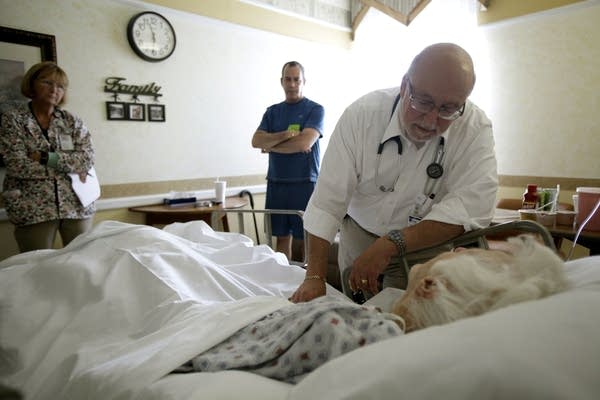to help you live as well as possible until your passing and to ensure a dignified death. Care providers should engage with you to understand your wishes and preferences, incorporating them into a personalized care plan. Additionally, they offer support to your family, caregivers, and other significant individuals. You retain the right to express where you’d like to receive care and where you wish to pass away.
Have questions?
Your local team of Client Care Managers are on call 24/7 to answer your questions and work with you to design a customized plan of care that is right for you.

Our hospital to home care services
End-of-life care at home allows for a peaceful and dignified passing in the most comfortable and secure environment. While some people spend their final days in hospitals, hospices, or nursing homes, many now prefer to remain at home, surrounded by loved ones. To ensure consistent care aligned with their preferences, older individuals should communicate their end-of-life care choices to caregivers in advance. For instance, if someone desires to die at home, receiving pain management and symptom-focused care, expressing this to healthcare providers and family reduces the likelihood of an unwanted hospitalization.
Honesty Home Care will provide the following support services to your loved one to feel comfortable and safe during what can be a distressing time:
Basic personal care
When Does End Of Life Care Begin?
End of life care should begin when you need it and may last a few days, or for months or years. People in lots of different situations can benefit from end of life care. Some of them may be expected to die within the next few hours or days.
Others receive end of life care over many months. People are considered to be approaching the end of life when they are likely to die within the next 12 months, although this is not always possible to predict. This includes people whose death is imminent, as well as people who: have an advanced incurable illness, such as cancer, dementia or motor neurone disease are generally frail and have co-existing conditions that mean they are expected to die within 12 months have existing conditions if they are at risk of dying from a sudden crisis in their condition have a life-threatening acute condition caused by a sudden catastrophic event, such as an accident or stroke
